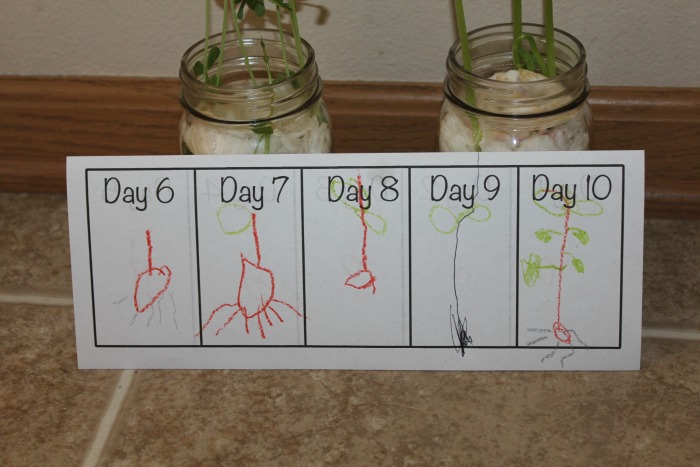Help your child use the ruler and measure 3 inches from the top of the bag and staple a bunch of staples in a row across the bag.
2nd grade seed planting in a plastic bag journaling sheet.
Seeds don t need soil to start germinating so you can place them in a sunny window and they will start sprouting right away.
Set your store to see local availability add to cart.
Fold the paper towel so it will fit neatly inside the plastic bag.
The seed coat protects the embryo while a temporary food supply nourishes it either as an endosperm packed around the young plant or stored in special leaves called cotyledons.
Germination is when the seed begins to grow a root and a shoot.
This experiment will allow children to see how and how many seeds germinate.
Fold a paper towel so that it fits just inside the plastic zip top bag.
Phthalates often called plasticizers are found in many soft plastic consumer products including plastic bags and garden hoses.
Introduce the word germination.
Germinating seeds in a bag is a fun way for kids to view how seeds transform into plants right before their eyes.
Place the paper towel in the plastic bag.
You plant a seed and under the right conditions the seed will begin to grow or germinate.
Some simple experiments with seeds in small plastic cups or egg cartons can also teach students exactly what seeds need in order to grow.
Seeds grow into new plants.
Observing seed germination in a plastic bag.
Plant 2 3 seeds per compartment.
If you water the soil after planting your seeds the water can shift the seeds around 2.
This plant learning packet features a plant observation journal page plant labeling a garden scavenger hunt a garden and plant themed word search and more.
Half cup of water.
Moisten the soil before you plant your seeds.
Our seeds were so tiny i m sure a few extra escaped our hands 3.
Plastic grow bag 25 pack model v724415 25 26 52 26 52.
The first step in plant growth is seed germination.
Free garden and plant worksheets for kindergarten 2nd grade.
This allows kids to watch how seeds sprout which is a process normally hidden by dirt.
Each seed has a seed coat and an embryo containing tiny leaves a stem and roots.
There are lots of opportunities for experimentation while learning about how plants grow.
Look at your seed packet for directions on how deep to plant your seeds.
With some natural light and a wet paper towel you can germinate seeds in plastic bags so that students can see the gradual changes in the seeds as they opens up.
In some cases the chemical is absorbed by the roots but little if any is translocated to the above ground parts of the plant.
The plastic bag acts as a window into the world of plant growth.
Eating roots may provide a higher dose than eating leaves.





























